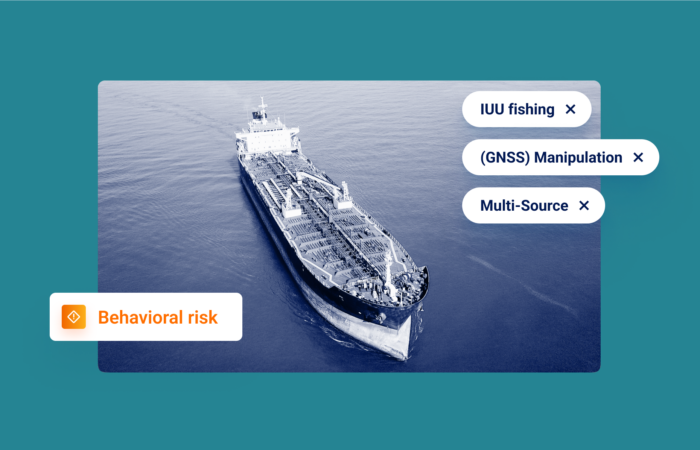What’s inside?
“Victims of forced labor are often isolated in inhumane conditions on board fishing vessels and trapped at sea for extended periods of time. Crew members can be subjected to a range of injustices, including physical, psychological, and sexual abuse; unsanitary and unsafe working conditions; 20-hour workdays; lack of pay; and even murder,” according to an illegal, unreported, and unregulated (IUU) fishing report by Oceana, a non-profit ocean conservation organization.
One of our previous blog posts provides data to help explain why IUU fishing so frequently involves forced labor and abuses: “IUU long-distance fishing vessels often aren’t seen for months in ports; according to Windward’s insights, out of the +2,000 vessels that were operating in the Pacific during September 2022, 38% were not seen in any port for at least six months, and 23% were not seen in any port for over a year.”
Not many crew members would willingly sign up for such brutal stints at sea…
Oceans Inc, a cross-border collaborative investigation by the ERC involving journalists and newsrooms based in thirteen countries, does a good job of humanizing forced labor victims.
It profiled Sepri, a migrant worker from Indonesia, who left his village desperate to find a better-paying job to financially support himself and to make his family proud. He saw an advertisement on social media offering work as a deckhand on a foreign fishing vessel paying $350 – double the minimum wage, with no experience needed.
Sadly, Sepri’s story ended in tragedy. A year later, he and his friend Ari both died and were buried at sea. According to witnesses, Sepri and the other Indonesians on their boat were beaten, worked around the clock, fed rotten food, and given contaminated drinking water. This caused them to get sick with an unknown illness and die.
Sepri’s story is not an isolated incident, with many experiencing the same inhumane treatment, often trapped and forced to work by means of violence, threat, or debt. Workers are detained on fishing vessels for months, or even years.
Look out for suspicious behaviors
So, how can you avoid inadvertently collaborating with vessels engaged in forced labor exploitation?
One of the most important steps is identifying suspicious behaviors that may indicate IUU fishing or forced labor:
- “Going dark” and switching off AIS tracking devices to conceal illegal activities is common for IUU fishing vessels, especially in hot zones, or on the borders of exclusive economic zones (EEZs).
- Staying out at sea for an extended period of time with no port calls can also be an indicator of IUU fishing. Many avoid entering ports of countries known to inspect ships and enforce fishing laws.
- While out at sea for extended periods, IUU fishing vessels often use supporting fleets to bring supplies, or unload vessels via ship-to-ship (STS) meetings.

Mitigate risk and positively impact society?
By executing a thorough due diligence process, maritime companies can avoid causing or contributing to adverse impacts on people, the environment, and society. Due diligence can also help mitigate potential risks, or adverse impact. Within the world of IUU fishing, adverse impact can include exposure to sanctions, reputational damage, and financial risk.
With Windward’s insights about STS behavior regarding supporting vessels, and the automatic risk indicator for forced labor, you can quickly optimize your due diligence and screening processes.
Effective due diligence does not just prevent harm to organizations, it can also generate positive outcomes. As noted in the OECD’s due diligence guidance for responsible business conduct, “Effectively preventing and mitigating adverse impacts (via due diligence) may in turn also help an enterprise maximize positive contributions to society, improve stakeholder relationships and protect its reputation.”


